|
|
|
|
Kia ora koutou, nau mai ki tēnei pānui - welcome to your newsletter.
It’s Te Wiki o te Reo Māori (Māori Language Week) and AUT’s senior lecturer in Māori language revitalisation Rachael Ka'ai-Mahuta has written a fascinating examination of the so-called “Korean Wave” and what we might learn from it in Aotearoa. As Rachael explains, for te reo Māori to thrive in the long term, it has to be part of the informal, casual language of teenagers and kids – in other words, we have to make te reo cool through music, movies, TV and pop culture. And of course, you can read the article in te reo Māori too here – see if you can pick up a few new words in the process, I know I did!
This week will also see New Zealand enter the final month of the election campaign. We have some great coverage planned, but we’d also love to hear from you what you would like to know more about - be it policy analysis, specific questions about parties and politicians, or anything else you think one of our experts could look into. You can reply directly to this email and we’ll take it from there.
There’s plenty more to read here and on our homepage, including legal expert Al Gillespie on why the law should be the last resort when tackling disinformation and conspiracy theories, and veterinary health expert Nigel French on how genome sequencing is helping researchers track the spread of infectious diseases other than COVID-19, including some New Zealand would also like to eliminate.
Happy reading and all the best till next time, ngā mihi nui ki a koutou katoa.
|
Finlay Macdonald
New Zealand Editor: Politics, Business + Arts
|

|
|
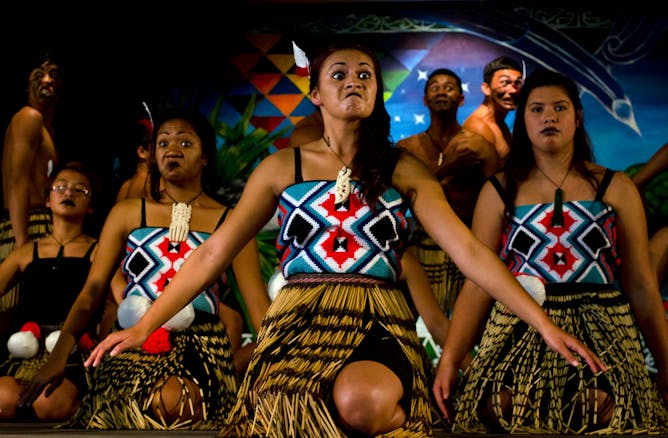
www.shutterstock.com
Rachael Ka'ai-Mahuta, Auckland University of Technology
The state-sponsored pop cultural renaissance of Korea shows how language isn't an obstacle to world domination.
|
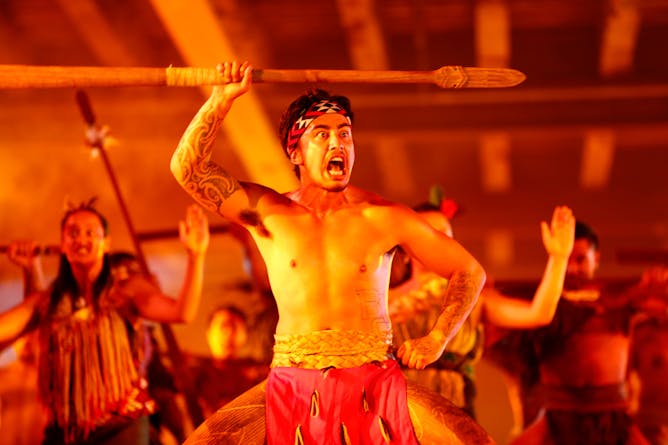
GettyImages
Rachael Ka'ai-Mahuta, Auckland University of Technology
Ko tā te kāwanatanga Kōrea whakahou i te ahurea o te marea, kei te whakaatu kāore te reo e aukati ana i tō angitu i te pae matawhānui o te ao.
|
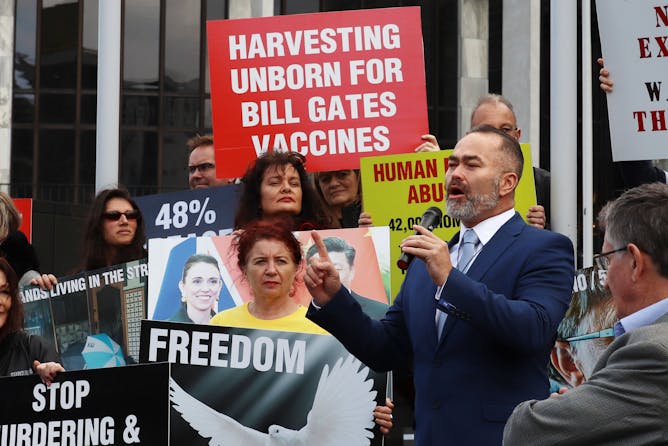
Advance NZ leader Billy Te Kahika speaks at a Wellington protest in August 2020.
GettyImages
Alexander Gillespie, University of Waikato
Using the law - or changing it - to stop the spread of dangerous disinformation should be a last resort.
|

Shutterstock/Gio.tto
Nigel French, Massey University
From a global cattle disease that can devastate herds to water-borne pathogens causing severe food poisoning, genome sequencing has become an important tool in the control of infectious diseases.
|
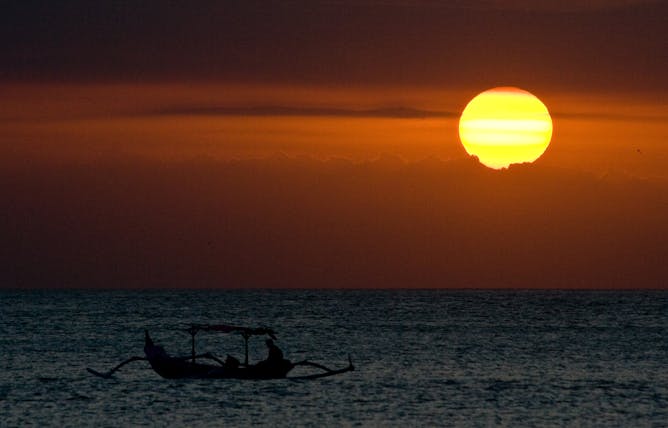
Flickr/
James Shulmeister, University of Canterbury
Absolute temperatures are expected to rise more slowly in the tropics than in higher latitudes and polar regions, but the combination of heat and rising humidity will make life more challenging.
|

Shutterstock/AlohaHawaii
Sarah Duffy, Western Sydney University; Michelle O'Shea, Western Sydney University; Patrick van Esch, Auckland University of Technology
If governments are looking for a post-pandemic "baby boom" to help populations grow, then they should increase the amount and duration of paid parental leave for both mums and partners.
|
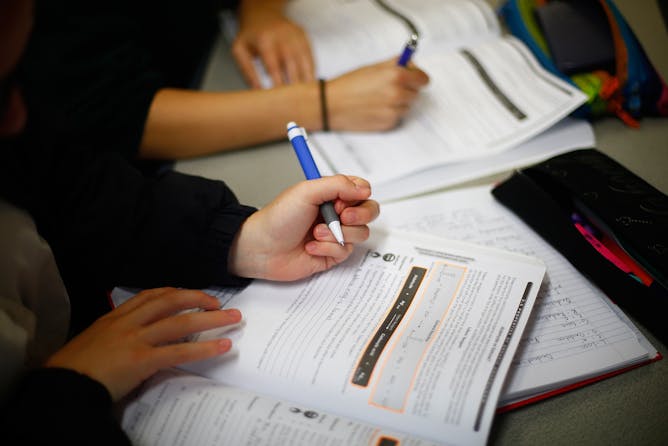
GettyImages
David Pomeroy, University of Canterbury; Kay-Lee Jones, University of Canterbury; Mahdis Azarmandi, University of Canterbury; Sara Tolbert, University of Canterbury
Ranking students by academic performance has been condemned as discriminatory and racist, yet New Zealand still leaves it up to individual schools to decide.
|
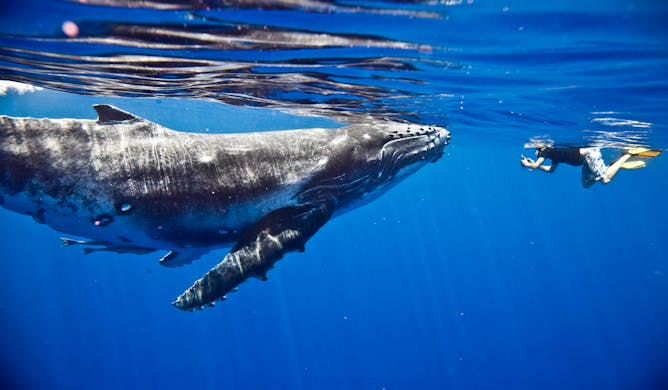
Shutterstock/anna sanfeliu gozalvez
Chantal Denise Pagel, Auckland University of Technology; Mark Orams, Auckland University of Technology; Michael Lueck, Auckland University of Technology
Whale breaches and tail slaps look great from a distance. But they can pose a threat if you want to get up close and swim with these giants of the ocean.
|

Finance Minister and Labour finance spokesperson Grant Robertson: higher tax revenue will be spent on economic recovery.
GettyImages
Jonathan Barrett, Te Herenga Waka — Victoria University of Wellington
Both major parties refuse to grasp the nettle of New Zealand's narrow and inherently unfair tax base.
|
From our international editions
|
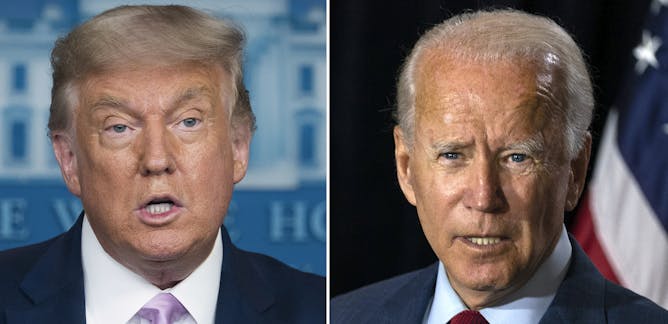
Simon Jackman, University of Sydney
The polls are predicting a comfortable win for Joe Biden over Donald Trump. But if this election sees the same polling errors as in 2016, Trump’s chances of re-election are higher than we think.
| |

Laura McKemmish, UNSW; Brendan Paul Burns, UNSW; Lucyna Kedziora-Chudczer, Swinburne University of Technology
The discovery of phosphine in the acidic clouds of Venus can't be explained by any known chemical or geological processes.
|
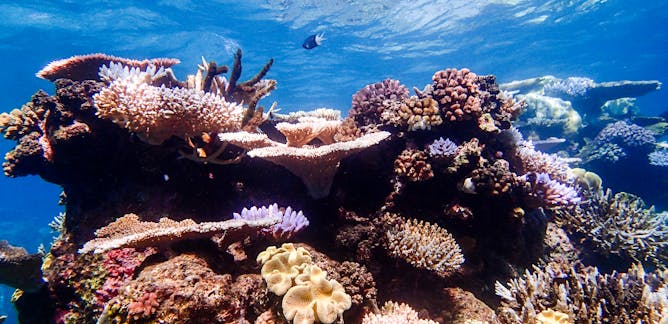
Tom Bridge, James Cook University; Andrea Quattrini, Smithsonian Institution; Andrew Baird, James Cook University; Peter Cowman, James Cook University
There are fundamental knowledge gaps around coral in the Great Barrier Reef, including how many species live there and where they're found. Our new study finally starts to fill those gaps.
| |
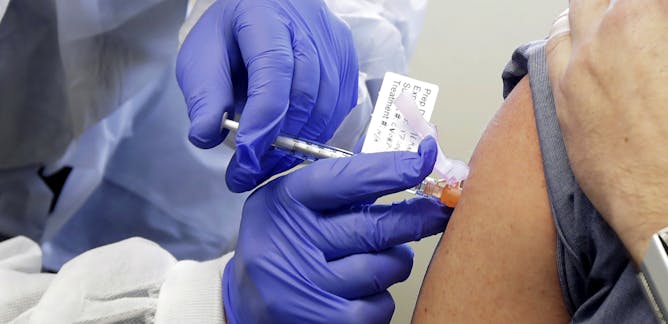
Efthimios Parasidis, The Ohio State University
Our best shot at ending the pandemic is by achieving herd immunity through widespread use of a vaccine. But that won't happen unless people believe it's safe.
|
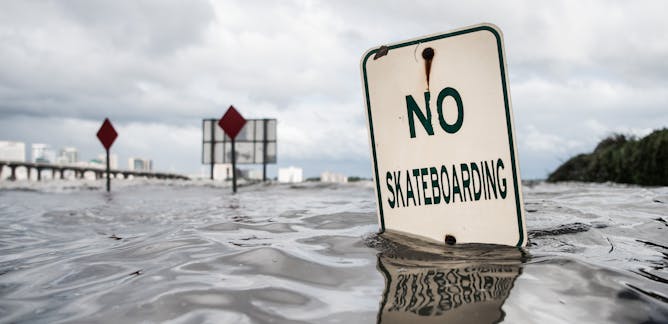
Anthony C. Didlake Jr., Pennsylvania State University
How high a storm surge gets depends on both the hurricane and the land.
| |
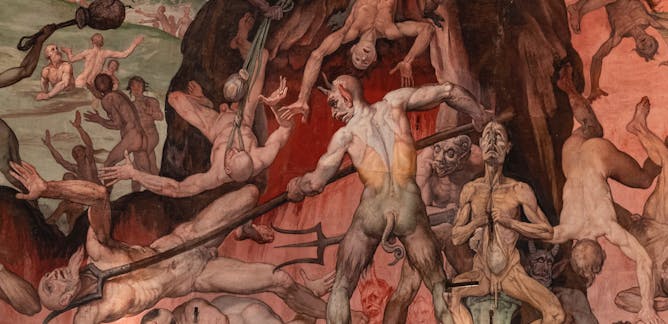
S Jonathon O'Donnell, University College Dublin
How some evangelicals use spiritual warfare to interpret the presidency of Donald Trump.
|
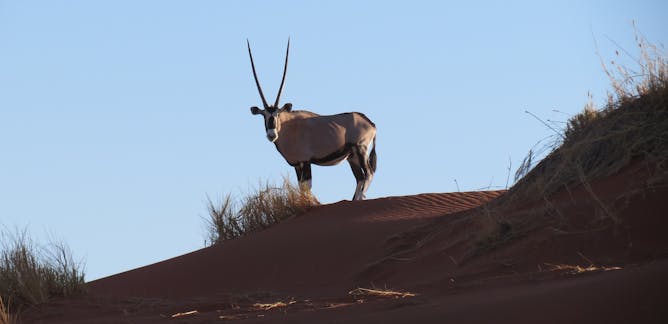
Michael Obersteiner, University of Oxford; David Leclère, International Institute for Applied Systems Analysis (IIASA); Piero Visconti, International Institute for Applied Systems Analysis (IIASA)
Wildlife populations have plummeted by 68% since 1970. But we have a plan to turn things around.
| |
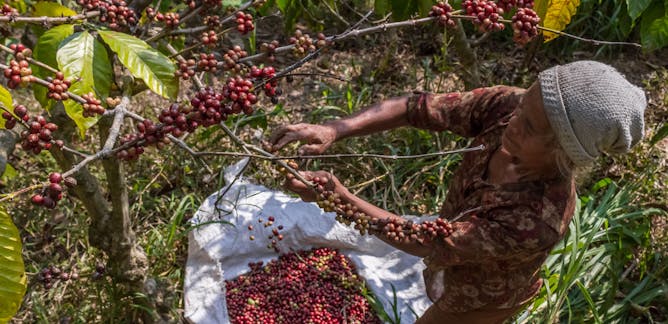
Angga Dwiartama, Institut Teknologi Bandung; Diany Faila Sophia Hartatri, Pusat Penelitian Kopi dan Kakao Indonesia; Jeffrey Neilson, University of Sydney; Mark Vicol, Wageningen University
Interventions with good intentions aren't always fruitful.
|
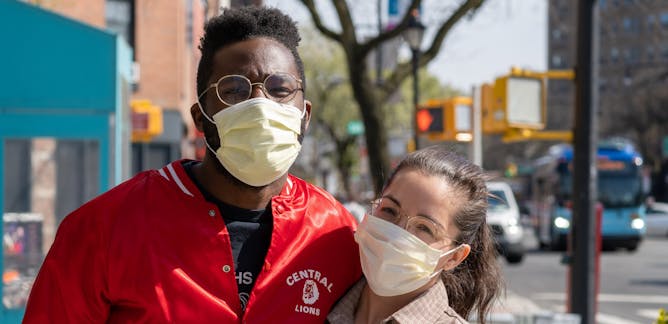
LLana James, University of Toronto
The COVID-19 pandemic has led to calls for the collection of race-based data. But the risks of algorithmic discrimination must be addressed.
| |
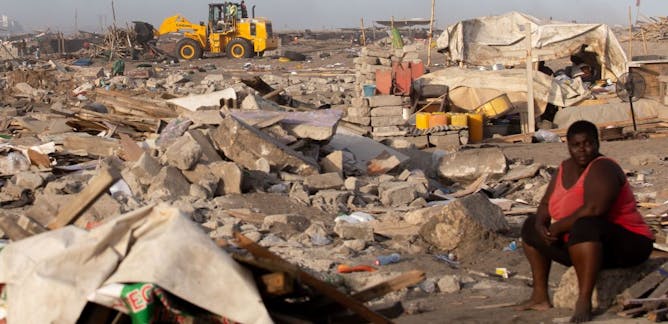
Nate Plageman, Wake Forest University; Jennifer Anne Hart, Wayne State University; Tony Yeboah, Yale University
The patterns of colonial spatial violence that played out in Ghanaian cities echo around the world.
|
|
|
| |
| |
| |
| |
| |
| |
|
|
|
|
|
|
|